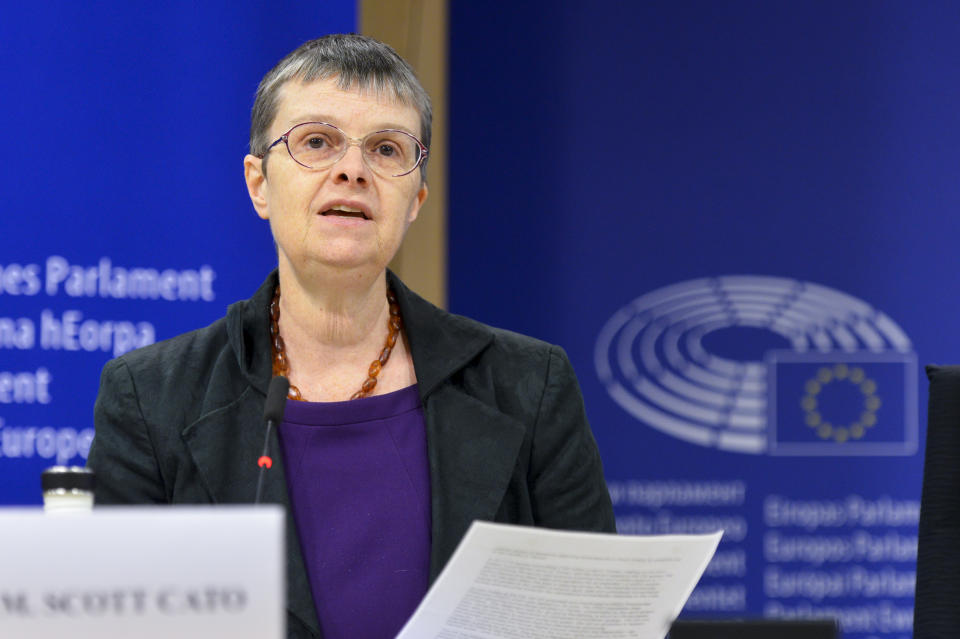There'll be 'serious disruptions' to UK food supply post-Brexit, say authorities
Shipping bosses have warned MEPs that the UK government’s plan for Brexit will cause chaos with the Britain’s food supply.
A cross-party group of British MEPs visited the North Sea Port in Ghent, Belgium, where most of the food that arrives in the dock makes its way to UK.
They were told by how fresh produce currently leaves the port at 3pm in the afternoon and is on supermarket shelves in Britain by 5am the next morning. Tomatoes from Italy, potatoes from Belgium, and peppers from Spain are among the fresh produce most regularly imported to Britain, according to an analysis of HMRC data by Glotech.
But the head of Belgium’s customs and ports authority told MEPs Thursday this “just-in-time” delivery process won’t be possible if Britain leaves the EU’s customs union, something that the UK government plans to follow through on, when Brexit happens in March, 2019.
Molly Scott Cato, a Green MEP who was at the meeting, said that would mean “serious disruptions” to the UK’s food supply.

“The transport system that makes possible the ‘just-in-time’ arrangements, used by so many companies and sectors in our economy, will fall apart if we leave the customs union,” she said. “This will threaten our food system, manufacturing industries and much more besides.”
The customs union eliminates tariffs and checks on goods transported between member states, making cross border deliveries quick and easy. But countries who are members of the customs union must also apply the same tariff to goods coming in from outside the EU, meaning that they can’t strike their own trade deals.
The UK government says that is incompatible with their aim of “taking back control” and want to put in place a new arrangement to ensure that there is frictionless trade between the UK and EU.
In its ‘Chequers plan,’ the government proposed a “free trade area” for goods which would see the UK accept EU rules in this area, accompanied by a customs arrangement that would involve the UK collecting tariffs on behalf of the EU.

Brexit Secretary Dominic Raab is continuing to push the proposals in negotiations today despite the fact they have been repeatedly rejected in Brussels.
EU Brexit chief Michel Barnier has said the bloc could not delegate its customs policy to any third country and that the UK’s plans for goods amount to “cherry picking” the best bits of the single market.
Labour MP Stephen Kinnock claimed Barnier told him the Chequers plan was “dead” at a meeting in Westminster earlier this week.
UK negotiators insist the plans are workable and do not represent an attack on the single market.
Labour MEP Seb Dance, who was also on the visit to the port, claimed that even the UK government’s preferred arrangement wouldn’t mean food delivering could take place as they do now.
“Even under most ambitious tariff-free free trade agreement, without [the] customs union this will grind to halt,” he said.
The UK government’s contingency plans for a no-deal Brexit revealed that they are preparing to stockpile supplies in case deliveries are halted by customs chaos.

 Yahoo Finance
Yahoo Finance 